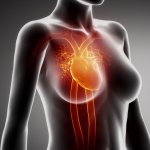
Image source: Adobe Stock/rocketclips
News • Gender bias
Dangerous double standard in heart disease prevention advice for women and men
Women are told to improve their lifestyle to prevent heart disease while men are advised to take statins. That’s the finding of a study presented at ESC Asia, a scientific congress organised by the European Society of Cardiology (ESC), the Asian Pacific Society of Cardiology (APSC), and the Asean Federation of Cardiology (AFC).¹
“Our study found that women are advised to lose weight, exercise and improve their diet to avoid cardiovascular disease but men are prescribed lipid lowering medication,” said study author Dr. Prima Wulandari of Harvard Medical School and Massachusetts General Hospital, Boston, US. “This is despite the fact that guideline recommendations to prevent heart disease are the same for men and women.”
Previous studies have shown that women with cardiovascular disease are given less aggressive treatment compared with men.2,3 This study investigated whether these sex differences extend to the prevention of cardiovascular disease. The study used data from the US National Health and Nutrition Examination Survey (NHANES) in 2017 to 2020. Of 8,512 men and women aged 40 to 79 years and no history of cardiovascular disease, 2,924 participants were at increased risk for developing cardiovascular disease according to a validated risk calculator and therefore eligible to receive statins.4,5 For the 2,924 participants, the researchers calculated the odds of men, compared with women, being prescribed statin therapy, and receiving advice to lose weight, exercise, reduce salt intake, and reduce fat or calorie consumption. The analyses were adjusted for age, risk of cardiovascular disease, body mass index, resting heart rate, depression score, and education status.
Recommended article

Article • Sex differences in heart failure
Why a closer look at a woman’s heart matters
The hearts of men and women are different – while this insight has been established for quite some time now, it might even surprise cardiologists just how deep these differences really run. In her presentation at this year’s ESC, Diana Bonderman, MD, gave a comprehensive roundup on sex differences in risk factors and subtypes of heart failure.
This demonstrated that a potential root of the discrepancy in advice is the misconception that women have a lower risk of cardiovascular disease than men
Prima Wulandari
The analysis showed that men were 20% more likely to be prescribed statins compared with women. Compared with men, women were 27% more likely to be advised to lose weight, and 38% more likely to receive recommendations to exercise. Regarding diet, women were 27% more often than men advised to reduce their salt intake, and 11% more frequently told to reduce their fat or calorie consumption. Dr. Wulandari said: “Following our analysis, we conducted a review of the literature to find possible explanations for the results. This demonstrated that a potential root of the discrepancy in advice is the misconception that women have a lower risk of cardiovascular disease than men. Our findings highlight the need for greater awareness among health professionals to ensure that both women and men receive the most up-to-date information on how to maintain heart health.”
ESC cardiovascular prevention guidelines recommend that adults of all ages should do at least 150 to 300 minutes of moderate intensity, or 75 to 150 minutes of vigorous intensity, aerobic physical activity a week, or an equivalent combination.6 Everyone should quit smoking. A healthy diet is recommended, emphasising plant-based foods including whole grains, fruits, vegetables, pulses, and nuts. Salt should be limited to less than 5 g per day. It is advised that overweight and obese people lose weight to lower blood pressure, blood lipids, and the risk of diabetes, and thereby reduce the likelihood of cardiovascular disease. Statins are recommended according to individual characteristics including age and risk of developing heart disease.
References and notes
- The abstract ‘Gender bias in primary prevention of cardiovascular diseases: a nationwide analysis of the United States samples’ was presented during the session ‘Risk Factors and Prevention’
- Williams D, Bennett K, Feely J. Evidence for an age and gender bias in the secondary prevention of ischaemic heart disease in primary care. Br J Clin Pharmacol. 2003;55:604–608
- Vallabhajosyula S, Ya'Qoub L, Singh M, et al. Sex disparities in the management and outcomes of cardiogenic shock complicating acute myocardial infarction in the young. Circ Heart Fail. 2020;13:e007154
- The researchers estimated the risk of developing cardiovascular disease over the next 10 years using the Pooled Cohort Equations
- Goff Jr DC, Lloyd-Jones DM, Bennett G, et al. 2013 ACC/AHA guideline on the assessment of cardiovascular risk. Circulation. 2014;129:S49–S73
- Visseren FLJ, Mach F, Smulders YM, et al. 2021 ESC Guidelines on cardiovascular disease prevention in clinical practice. Eur Heart J. 2021;42:3227–3337
Source: European Society of Cardiology
09.12.2022











